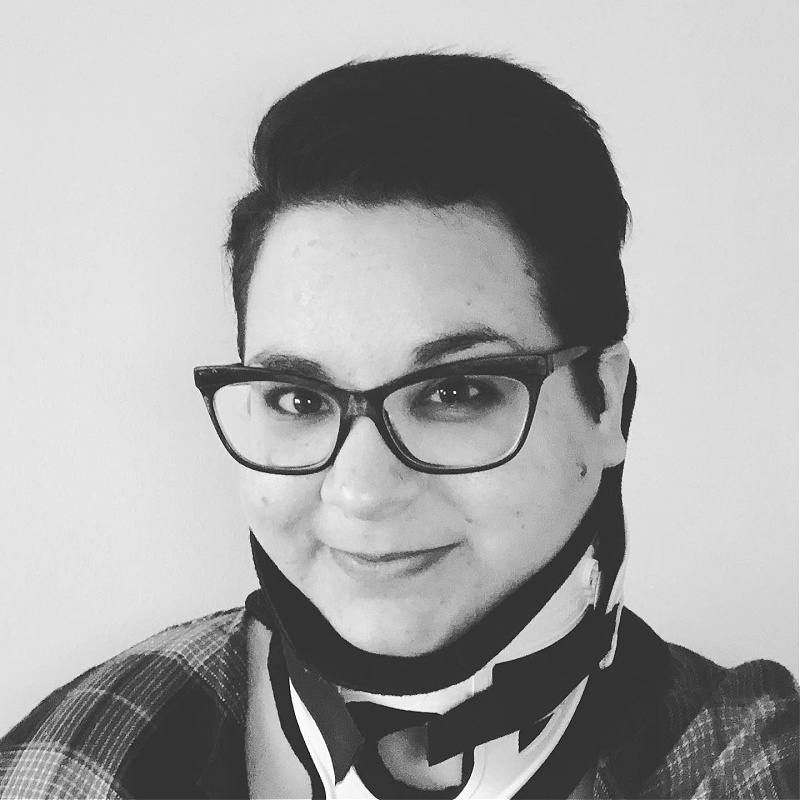AMI announces the Accessible Writers’ Lab
Accessible Media Inc. (AMI), in partnership with ReelAbilities Film Festival Toronto and the Miles Nadal JCC, and sponsored by the Canada Media Fund (CMF), is pleased to announce that submissions are now being accepted for the Accessible Writers’ Lab.
Designed and led by Ophira Calof, the Accessible Writers’ Lab is an innovative, national lab for writers with disabilities and established showrunners/senior writers to experiment with what an accessible TV writers’ room might look like, breaking down barriers and creating pathways for creatives in the disability community to thrive in the Canadian television industry.
Right now, writers’ rooms, both in-person and virtual, are largely inaccessible for creatives with disabilities. There are barriers in communication modalities, sensory needs, structure, process and stigma. These barriers become glaringly evident in the recent Writer’s Guild of Canada Equity, Diversity and Inclusion Report which showed that only 0.3% of Guild membership identified as a person with a disability, and writers with disabilities only accounted for 1% of TV writers across Canada in 2019, despite people with disabilities making up approximately 22% of the population.
The initiative is designed to address those barriers by focusing on collective accessibility, fostering relationships and knowledge sharing and culminates in a case study report that will be distributed industry wide.
The Accessible Writers’ Lab is open to applicants who:
● Are Canadian citizens or permanent residents
● Are 18 years of age or older
● Identify as Disabled, d/Deaf, chronically ill, neurodiverse, Mad or sick*
● Have storytelling experience (this may or may not be screenwriting)
● Are interested in writing for the Canadian television industry
● Are excited about collective accessibility and experimenting with unique writing methods
The Accessible Writers’ Lab will be shaped, in part, by the needs and interests of selected writers.
Location: Virtual, with the possibility of hybrid meet-ups, depending on interest, geography and availability
Timeline: September-November, with approximately 20 hours of scheduled programming, along with discretionary time spent developing a scene or script individually or with a partner
Payment: This program is free of charge, and each participant will receive a $1,350 honorarium
Deadline for submissions: August 4, 2022
More information: Check out the program webpage
Apply now: Fill out the Google document
Questions about the lab and application support: accessiblewriterslab@gmail.com
 About Ophira Calof
About Ophira Calof
Ophira Calof (pronouns: she/they) is a multi-award-winning disabled writer, performer and consultant who works to “crip the script,” centring disability knowledge and experience throughout process, production and presentation. Their credits include TallBoyz (CBC), Kids In The Hall (Amazon Prime), Generally Hospital (Canadian Comedy Award Nominee) and their solo show Literally Titanium (Next Stage Theatre Festival). Ophira has also created a number of disability arts projects, including Making Space: Stories of Disabled Youth Past and Present (Myseum Toronto/RAFFTO) and Dis/Play (MNJCC/RAFFTO/ArtWorxTO: Toronto's Year of Public Art 2021-2022).
Additionally, Ophira was the accessibility process lead for AccessCBC, the curatorial committee lead for the 2022 ReelAbilities Film Festival Toronto, and has taught workshops internationally on storytelling, writing, music, accessibility and disability narratives. They have created the courses Sketch Comedy with Ophira Calof and Crip Storytelling, a series in partnership with Centre of Independent Living Toronto and the Miles Nadal Jewish Community Centre.
*The program’s understanding of disability embraces The Accessible Canada Act definition, which is inclusive of visible and invisible disabilities, permanent, temporary or episodic in nature. We will honour the language writers use to self-identify, acknowledging that ableism, audism and sanism can be experienced regardless of your relationship with the word “Disability.”


